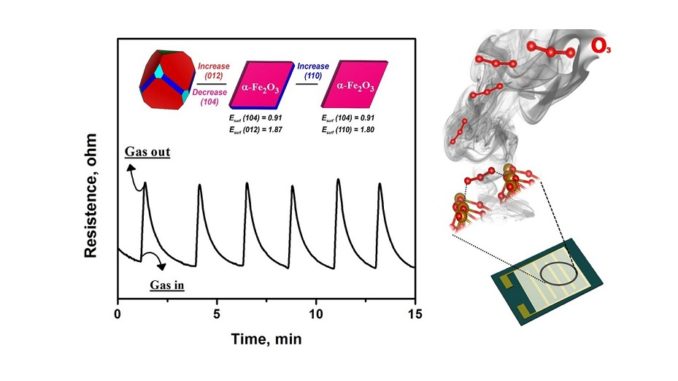
Hematite rhombuses for chemiresitive ozone sensors: Experimental and theoretical approaches
Abstract: This manuscript addresses an experimental and theoretical investigation regarding the ozone (O3) gas-sensing properties of hematite microrhombuses obtained via the hydrothermal method. Gas-sensing experiments showed the sensitivity of the microrhombuses towards O3 gas from 12 ppb (parts-per-billion), presenting total recovery and a long-term stability of 4 months. Theoretical calculations revealed that the surfaces play an important role in the adsorption/desorption processes. Moreover, it was found that the presence of (1 0 4) surfaces is favorable to the high sensitivity towards O3 molecules, confirming the experimental results. These results allowed us to better understand the morphological changes and directly relate the sensing performance of hematite microcrystals at different exposed surfaces.
Author(s): Catto, A.C.; Oliveira, M.C.; Ribeiro, R.A.P.; Avansi Jr, W.; Silva, L. F. ; Longo, E.
Applied Surface Science
Published: 15 October 2021, Volume 563, 150209

